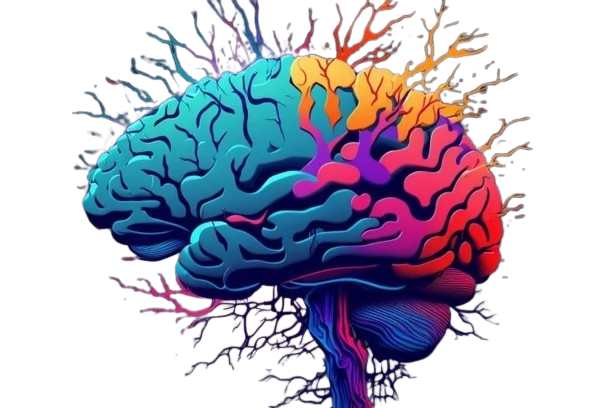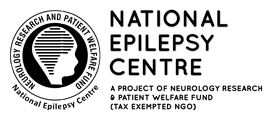
Lives of ~2.2 Million
People with Epilepsy in
Pakistan









Enacted & Self-perceived





National Epilepsy Centre
National Epilepsy Centre is a NGO- run institution designed exclusively for epilepsy care. Located in the heart of the metropolitan city of Karachi, Pakistan it provides holistic (medical & physhosocial) management to all patients with epilepsy irrespective of their religion, caste, creed, with a special focus on economically marginalized population.
Our Fingerprints On The Lives We Touch Never Fade

Holistic Management
Medical and psychosocial management for all patients with epilepsy irrespective of their religion, caste or socio- economic status.

Public Awarness
Awareness through print and electronic media.

Education for Professionals & General Public
Capacity building workshops, webinars and conferences for specialists and primary care
physicians. Customized epilepsy workshops for paramedics, medical school students and general public.

Research
Quality epilepsy related research in Pakistan for publication in prestigious national and international journals.
Our Patients, Our Advocates
Madeeha Sharif is a 32-year-old mentally disabled female who has been one of the most challenging cases to treat. When presented at National Epilepsy Centre in 2013, she was having 200 plus tonic-clonic seizures per month………..
ACHIEVEMENTS
Vision
Values
REGISTERED PATIENTS
VOLUNTEERS
EEGS WITH VIDEO RECORDING
REDUCTION IN TREATMENT GAP THROUGH PUBLIC AWARENESS
Our Goals
- Sustained ongoing epilepsy management services
- Continue public awareness
- Provide advanced management opportunities to be a step closer to excellence
- Innovative ideas for innovative future
- Make a legacy
- Make people with epilepsy productive citizens of Pakistan
Work Integrity
- Quality assured services
- Enhance doctor patient relationship
- Building donor trust through transparency and accountability
- Challenging the odds
Its Better to Light a Candle
Than to Curse The Darkness
We Make a Living with What We Get
We Make a Life by What We Give
Warisha, our 9-year-old epilepsy patient from a financially challenged family, consistently donates to the institution that made her seizure-free. Despite the modest monetary value, her act of giving reflects profound gratitude and a wish for others to benefit. Supported by her parents, Warisha’s generosity serves as a reminder of the transformative power of compassion, emphasizing that even small contributions can make a significant impact on individuals and communities. Her story is an inspiring example of how kindness and gratitude can create a positive ripple effect, fostering a sense of community and shared responsibility.
Together, let’s continue to make a difference in the lives of those affected by epilepsy.
Join Hands in Supporting Our Cause

Frequently Asked Questions
WHAT IS EPILEPSY?
Epilepsy is one of the most common brain disorders affecting about 50 million people worldwide. Our brain sends electrical commands to our body which then acts accordingly. Disruption in this electrical activity leads to a change in a person’s physical and behavioural activities with alteration in level of awareness. This constitutes a seizure, the clinical symptoms of epilepsy.
WHAT ARE THE CAUSES OF EPILEPSY?
The causes of epilepsy can broadly be labelled under the headings of structural, infectious, metabolic, immune and unknown. Genetic predisposition can be a cause of epilepsy but is not very common.
- In 60% of people with epilepsy no cause is found and thus called ‘idiopathic’ epilepsy.
- Epilepsy with an overt cause is called ‘symptomatic’ epilepsy. Causes include:
- Brain damage from prenatal or perinatal causes e.g. a low/loss of oxygen, birth trauma, low birth weight, kernicterus (severe jaundice at birth)
- Congenital abnormalities with associated brain malformations like Cerebral Palsy, Down syndrome etc.
- Brain infection; tuberculosis, meningitis, encephalitis
- Brain tumours
- Stroke, causing brain scarring
- Severe head injuries like in road traffic accidents, fall from height
- Neurodegenerative diseases
WHO TREATS EPILEPSY?
Epilepsy is usually treated by primary care doctors (family physicians, general practitioners), psychiatrists, paediatricians, neurologists or epileptologists (neurologist specializing in epilepsy). Epileptologists have a major role when there is complexity in diagnosis or in seizure control and treatment.
HOW IS EPILEPSY DIAGNOSED?
The primary method of diagnosing epilepsy is by doctors taking a detailed description of the seizures from the witness and patient, along with present and past medical history. They may ask for some tests to help give additional information about the type and cause of the epilepsy or rule out any other conditions that can seizures. Home video recording on mobile phones is very helpful.
IS THERE A CURE FOR EPILEPSY?
Epilepsy is treatable disorder like high blood pressure and diabetes. With medications one can become seizure free and 60% of them can go off medicines. However, it is your doctor who will decide and advice how to slowly taper off as sudden withdrawal can prove fatal.










